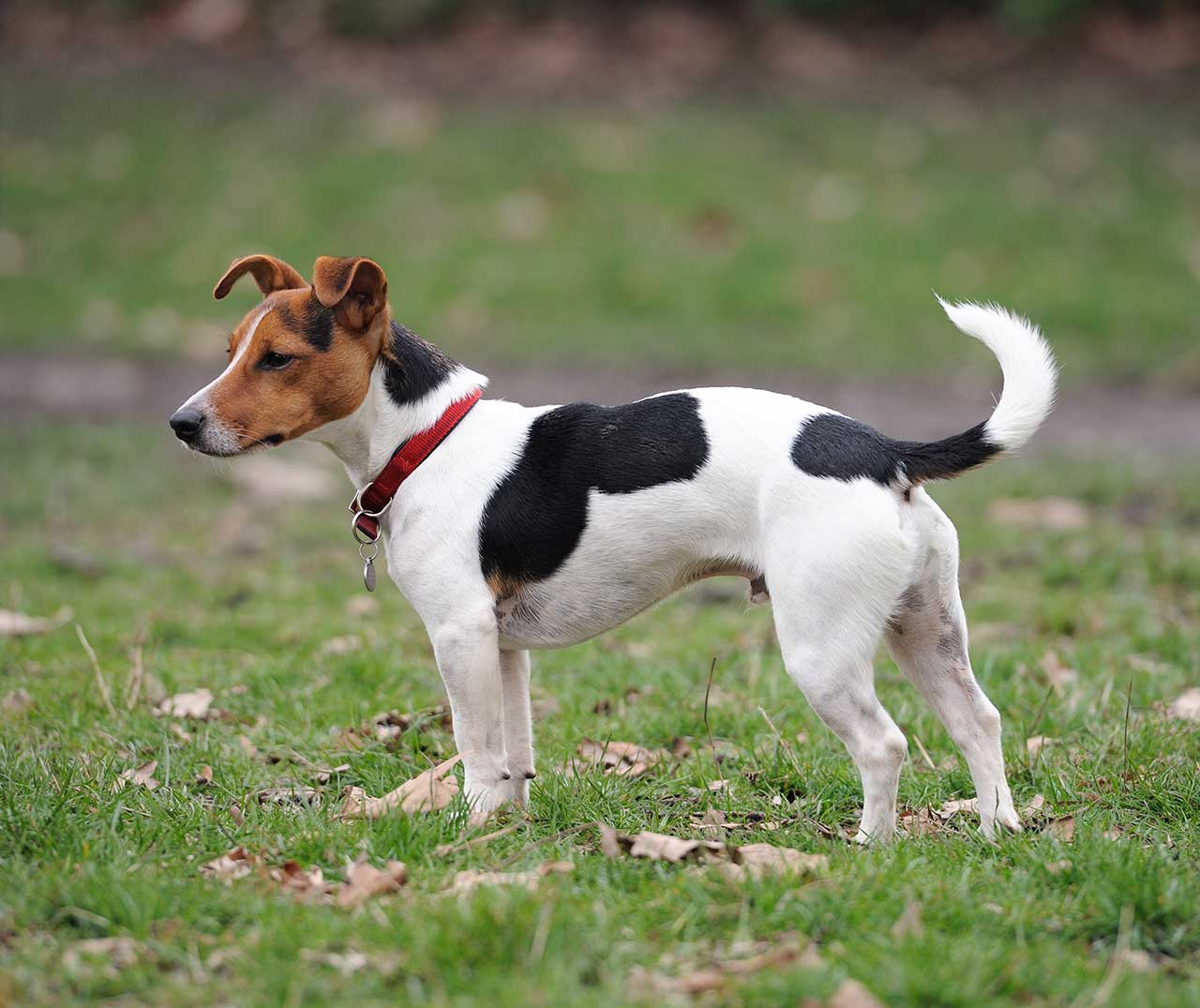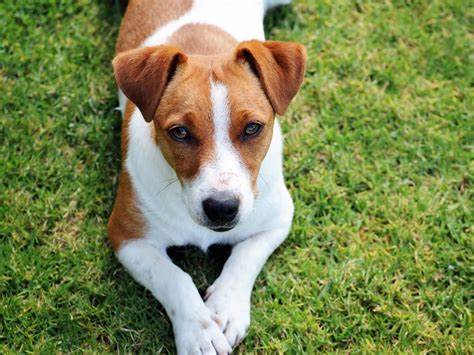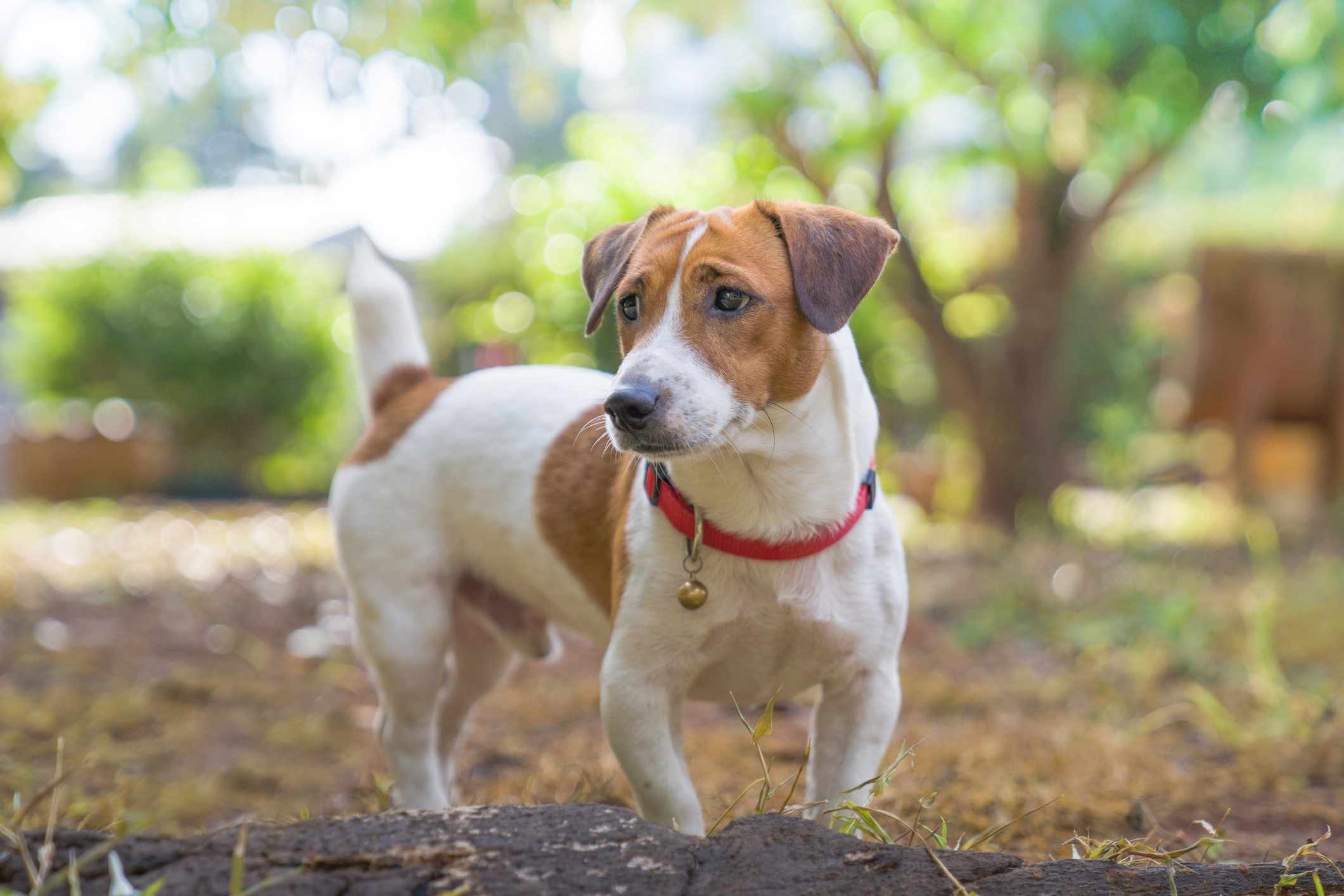
The Russell Terrier, also known as the Jack Russell Terrier in some circles, hails from England during the early 19th century. Developed by Reverend John Russell, the breed was created for fox hunting, requiring a small but fearless dog that could flush foxes out of their dens.
Though originally lumped together with the Parson Russell Terrier, the Russell Terrier is recognized today as a distinct breed, especially noted for its slightly shorter legs and more compact body. The breed eventually gained international recognition, becoming particularly popular in Australia and later in the United States.
The Russell Terrier’s vivacious spirit, small size, and intelligence have made it a popular choice for active families and dog sport enthusiasts. Their cheeky personality and boundless energy have earned them roles in TV shows, movies, and commercials (such as the iconic dog Eddie from the sitcom Frasier).
In modern homes, Russell Terriers continue to shine as spirited, loyal companions who thrive in environments that match their energy levels.
Russell Terriers are small but sturdy dogs built for agility and endurance.
• Height: 10–12 inches (25–30 cm)
• Weight: 9–15 pounds (4–7 kg)
• Build: Compact and athletic with a flexible body
• Coat: Smooth, broken, or rough; dense and weather-resistant
• Color: Predominantly white with black, tan, or tri-color markings
• Head: Flat skull with a strong, defined muzzle
• Eyes: Dark, almond-shaped, lively expression
• Ears: Small, V-shaped, folding forward
Their compact size and bold posture give them a presence far bigger than their actual body suggests.
Russell Terriers are bold, spirited, and clever, with a huge personality packed into a small body.
• Lively: Always ready for action and play
• Fearless: Bold even when facing much larger animals
• Affectionate: Loving and loyal toward their family
• Intelligent: Highly trainable but can be willful
• Alert: Excellent watchdogs due to their sharp senses
These terriers need both mental and physical stimulation daily to avoid developing nuisance behaviors like digging or barking excessively.

The Russell Terrier is a fantastic choice for individuals or families who want a small, active, and fun-loving companion.
Ideal for:
• Active owners who enjoy outdoor activities
• Families with older children who can respect their energy
• Dog sport enthusiasts (agility, obedience, flyball)
• Those seeking a bold personality in a small package
Not ideal for:
• Owners seeking a low-energy or couch-potato companion
• Very young children (unless carefully supervised)
• Homes unwilling to commit time to training and exercise
• Exercise: High energy; needs plenty of physical and mental stimulation daily
• Training: Highly trainable but requires consistent, firm, positive reinforcement
• Grooming: Low maintenance; regular brushing keeps their coat healthy
• Living Environment: Thrives with access to a secure yard; can adapt to apartment living if exercised properly
• Feeding: Balanced diet for active small breeds
Without proper exercise, Russell Terriers may become frustrated and find creative (and often destructive) ways to entertain themselves.
Russell Terriers are generally healthy dogs, but watch for:
• Patellar luxation (knee issues)
• Deafness
• Eye disorders (lens luxation, cataracts)
• Legg-Calve-Perthes disease (hip joint issues)
Their average lifespan is an impressive 13–16 years when well cared for.

• Parson Russell Terrier: Taller and longer-legged than the Russell Terrier; both share similar energy and hunting instincts.
• Rat Terrier: Another small terrier breed, slightly calmer and more oriented toward companionship.
• Border Terrier: Also energetic, but typically a little more relaxed and easier to manage indoors.
If you are looking for a compact powerhouse of energy, affection, and intelligence, the Russell Terrier will fit right into your active life. They are happiest when included in daily activities and given plenty of opportunities to use their quick minds.
Avoid if you prefer a laid-back, low-maintenance dog lifestyle.
Look for a reputable breeder or rescue organization that screens for genetic health issues common to the breed. Active terrier rescues often have Russell Terriers in need of lively, loving homes.
United Pet Club offers help with health record keeping, training advice, microchip registration, and travel documentation for your Russell Terrier.